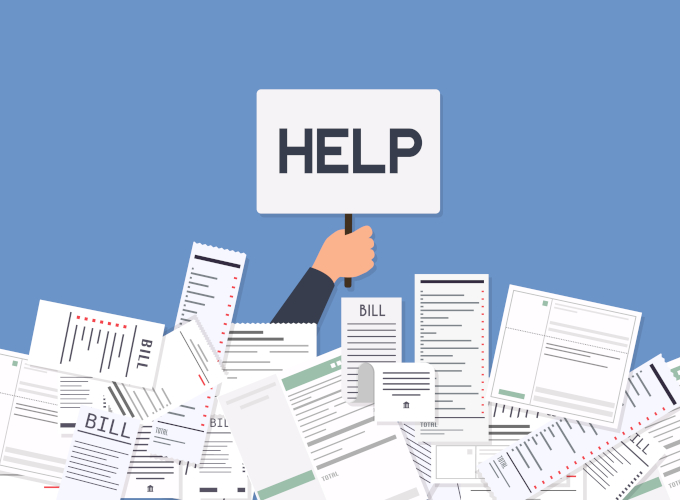
Losing a job can be devastating, especially when the job loss was unexpected.
Unemployment can turn life upside down due to the loss of income, as well as loss of any benefits that your job may have provided.
Fortunately, government assistance is available to provide financial support while you are between jobs, if you qualify.
Unemployment insurance (UI) assists qualifying unemployed and underemployed workers with monetary benefits.
These temporary benefits can help cover some of the loss of income that a worker may experience.
In order to receive them, beneficiaries are required to submit weekly claims and actively search for work. Learn more about weekly UI benefits below.
Learn How to Receive Unemployment Insurance Benefits
The Unemployment Insurance program provides financial unemployment benefits to qualifying workers.
This includes those who have become unemployed or underemployed through no fault of their own.
These benefits are offered in order to provide temporary financial assistance and relieve some of the burden that naturally comes with losing employment.
Understanding Unemployment Insurance Laws
The UI program has some differences within every state, as the states are provided with the freedom to determine eligibility, benefit amounts and benefit lengths within federal guidelines.
Therefore, it is important to familiarize yourself with your own state program in order to be better prepared for the unemployment benefits process.
Most state UI benefits are funded through a tax that is imposed upon employers.
This tax helps cover weekly payments made towards eligible unemployment beneficiaries after a claim has been filed.
While the tax is imposed on employers, federal law restricts companies from passing any of this tax onto their employers. Therefore, in most states employees never pay for unemployment insurance.
What are the requirements for unemployment insurance benefits?
In order to receive UI benefits, you must meet the eligibility requirements that have been set by your state program.
While these requirements may vary, qualifications do follow general guidelines. For example, to be eligible for benefits you must have worked a minimum amount of time.
This period of time is referred to as your “base period.”
For most states, your base period is the first four out of the last five finished calendar quarters, prior to the date that you file your first claim.
The number of wages that you must have earned during your base period must also meet state-set minimums.
Not only do these amounts determine your eligibility for UI benefits, but they also factor into the amount of benefits that you may be eligible to receive.
You can only receive unemployment benefits if your state program considers you to not be at fault for your unemployment or underemployed status.
This means that, in most cases, you cannot have voluntarily left your place of employment, and your job loss cannot be related to disciplinary actions.
As soon as you become unemployed, it is crucial that you contact your state unemployment agency to learn how to file for UI benefits.
Depending on the state that you are filing in, you may be permitted to apply online, over the phone or at your local unemployment office.
To file an unemployment claim, you must provide information related to yourself and former employers, including the names, addresses and working dates for former employers.
In order to ensure that your application is processed quickly and accurately, it is important to review all of the information you provide and ensure that all of the information provided is truthful and accurate.
On average, it can take two to three weeks from the date that you file your first unemployment claim to receive your first benefit payment. However, if your previous employer contests your unemployment claim, it may take longer for you to begin to receive benefits.
Discover Unemployment Insurance Benefits
In most cases, unemployment benefit amounts are based upon a percentage of your earnings over the most recent 52-week period.
In addition, each state UI program has its own maximum benefit amount limits. Benefits are paid for a maximum of 26 months across most states.
However, in some cases, benefits may be provided for longer during times of high unemployment.
This determination is made by the state Unemployment Insurance program. Unemployment Insurance benefits are also subject to federal income taxes.
When filing for unemployment benefits, you will be given the option as to whether or not to have tax withheld by the unemployment agency.
Learn About Filing Weekly or Bi-Weekly Unemployment Claims While Receiving Benefits
In order to receive benefits from the UI program, you will be required to file weekly or biweekly claims, depending on the state you are filing with.
Each claim will ask you to respond to questions regarding your continued eligibility, as well as to report any earnings from work that you have had.
Additionally, you must report any job offers you have received and whether or not you have refused any job offers.
Depending on the state you are filing with, you may be able to file your unemployment benefits claim online, over the phone, by mail or by visiting your local unemployment office.
While receiving benefits, you may occasionally be instructed to visit your local claims office. Should you fail to appear at the right date and time for an interview, your benefits may be denied, reduced or revoked.
How can you continue to qualify for unemployment insurance benefits?
If you are approved to receive UI benefits, you will need to meet additional qualifications while receiving benefits under the state program.
For example, you may be directed to register with your state unemployment office for assistance in your job search.
When receiving benefits, you must continue to seek new employment opportunities, track the efforts that you have made to find new employment and report this information to your unemployment office when filing your weekly or biweekly claims.
In an effort to assist UI beneficiaries in finding new employment opportunities, most state offices provide several re-employment services.
Your state office may be able to provide you with a list of job openings within your area, refer you to free job training programs, provide job counseling, assist you with resume building, refer you to other agencies and more.
Discover Unemployment Insurance Disqualifications
When filing a claim for Unemployment Insurance, your local unemployment office will carefully examine the reason for your job loss.
If you lost your job for any reason other than “lack of work,” your eligibility must be determined before benefits can be issued to you.
If you are denied unemployment benefits, you have the legal right to an appeal. Should you choose to appeal, you must do so within a set period of time after your denial letter has been issued.
The cut-off date to file unemployment appeals will be listed on your denial letter.
While filing an appeal does not guarantee that a decision regarding your unemployment benefits will be changed, it does provide a detailed second look at your case in order to ensure that a decision was not reached in error.



